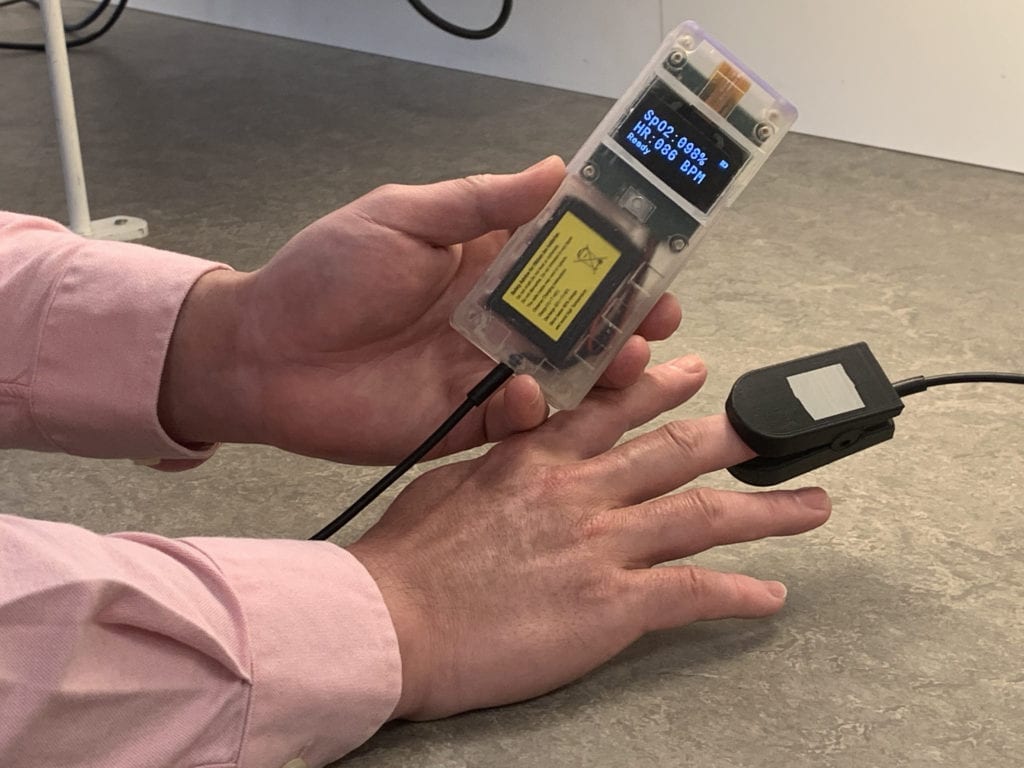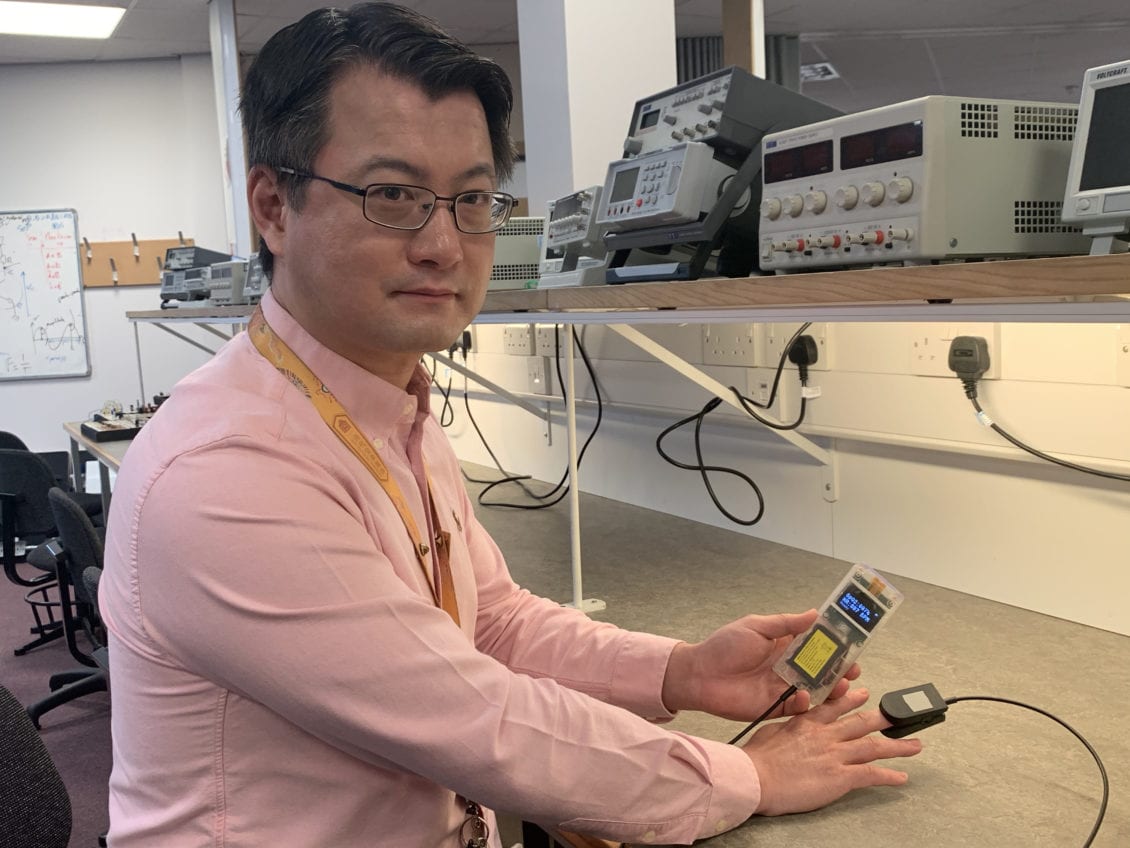Researchers at the University of South Wales (USW) have developed an innovative blood oxygen monitor after supplies of this key device became limited as a result of the Covid-19 pandemic.
The team of researchers have worked under the instruction of the Welsh Government’s Critical Equipment Requirements Engineering Team (CERET), led by Industry Wales, which was looking for the development of a locally-sourced product.
In collaboration with Welsh Government, Panasonic UK, and clinicians at Hywel Dda University Health Board, the device, known as a pulse oximeter, has been designed to be manufactured in Wales and breaks away from the standard oximeter supply chains, effectively eliminating future sourcing bottlenecks.


The oximeter device clamps onto to a patient’s finger, allowing clinicians to monitor the level of oxygen in the bloodstream, and, importantly, the performance of their lungs. It also has the potential to be used in community settings, allowing clinicians to remotely assess patients with Covid-19 to monitor the performance of their lungs whilst at home, to determine appropriate and early lifesaving treatment such as CPAP to support breathing.
The team of researchers not only turned around the concept from first principles to prototype in just two weeks, but have developed a product that importantly will provide high accuracies at lower oxygen levels, an essential requirement for effective Covid-19 treatment.
The team has developed 20 prototypes that have undergone testing against manufacturing standards, such as medical EMC, and passed. The product has also been submitted for a fast-tracked MHRA (Medical and Healthcare products Regulatory Agency) approval so that they could be used by the NHS and other care providers as soon as required.
Welsh Government has awarded £83,000 funding to USW under its COVID Research, Development and Innovation Support call to cover the research and development cost for the new design. When MHRA exemption approval is granted, the device would then be produced by manufacturers in Wales within a matter of weeks in readiness for any future potential Covid-19 case peaks.
Nigel Copner, Professor of Optoelectronics at USW, has led the team of researchers in the development of this new prototype.
He said: “We wanted to be able to use our experience and knowledge of optoelectronics and engineering to develop something that could be of real use during the pandemic. After discussions with Welsh Government, it became evident that we could really help the NHS by developing a superior low-cost pulse oximeter that could be manufactured locally, avoiding potential bottlenecks for demand, cutting delivery times, and creating a new supply chain within Wales and the UK.
“Supplies for parts of the existing pulse oximeters are in huge demand, and working with local manufacturing expertise gives us another route to create a product that could potentially help to save lives.”
Professor Paul Harrison, Pro Vice-Chancellor for Innovation and Engagement at USW, said: “It’s another example of this crisis driving innovation and I’m really proud of the team in electrical and electronic engineering who have worked so hard to develop the pulse oximeter. The state-of-the-art design will allow the early detection of breathing difficulties in people with Covid-19 whilst they self-isolate at home.”
Ken Skates, Minister for the Economy, Transport and North Wales, said: “I am delighted that we have been able to work with and support the University of South Wales and manufacturing companies in Wales to develop such an essential piece of equipment within such a short time. It is fantastic that these could be manufactured in Wales to support NHS Wales, and further afield.”
Dr Rhys Thomas, from Hywel Dda University Health Board, has been working with USW on the development of the device.
He said: “One of the key advantages of this device is that it can measure low oxygen levels, which is characteristic of what we are seeing in patients with Covid-19. Being able to source and manufacture it locally within in Wales also provides potential benefits for the economy.”








Leave a Reply
View Comments